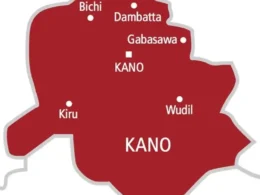Shari’ah Arbitration Panel Holds Maiden Sitting in Ekiti, Resolves Marriage Disputes
The Independent Shari’ah Arbitration Panel in Ekiti State has officially commenced operations, holding its inaugural public sitting in Ado Ekiti to provide arbitration based on Islamic jurisprudence. The panel, which was established by the Supreme Council for Islamic Affairs in Ekiti State, aims to resolve civil disputes—particularly marriage, divorce, inheritance, and related matters—while adhering strictly to Islamic principles.
The panel, chaired by three Kadhis—Imam Abdullahi Abdul-Mutolib, Imam Abdulraheem Junaid-Bamigbola, and Dr. Ibrahim Aminullahi-Ogunrinde—heard two marriage-related disputes during the sitting.
In the first case, the presiding Kadhi, Imam Abdullahi Abdul-Mutolib, announced that the couple involved reached a peaceful resolution through a consent judgment. The resolution was aided by prior interventions from family members, which allowed for an amicable settlement of the dispute without further deliberation.
However, the second case was more contentious. A wife accused her husband of neglecting his marital responsibilities, leading to tension between the two parties. After listening to both sides, the panel adjourned the case to January 30, 2025, to allow for further investigation and ensure a fair resolution.
In addressing both cases, Imam Abdul-Mutolib stressed the need for couples to remain mindful of Allah’s guidance in marriage. He urged husbands to fulfill their responsibilities and wives to be submissive and content with their provisions, as prescribed by Islamic teachings.
The President of the Supreme Council for Islamic Affairs in Ekiti State, Alhaji Hammed Bakare, emphasized that the Shari’ah Arbitration system is entirely voluntary. He clarified that while it is based on Islamic principles, it is not mandatory for Muslims—or anyone else—to use this system to resolve disputes.
“Shari’ah adjudication is not compulsory for all; it is meant for Muslims or those who willingly choose to submit their grievances to it. Non-Muslims may also participate, but it remains entirely voluntary,” he explained.
Additionally, the council’s Deputy President, Barrister Tajudeen Hammed, elaborated on the panel’s compatibility with the state’s civil legal framework. He explained that the Shari’ah Arbitration Panel operates harmoniously within the broader civil jurisdiction of Ekiti State. Its rulings are based strictly on Islamic scriptures, such as the Qur’an and Hadith, and are designed to resolve disputes fairly without conflicting with the state’s civil laws
Barrister Hammed commended the expertise of the panel’s Kadhis, lauding their deep understanding of Islamic jurisprudence and their dedication to applying Qur’anic and Hadith principles in arbitration. According to him, the panel was created to offer a faith-based platform for dispute resolution that respects Islamic doctrines while ensuring fairness.
The panel was officially inaugurated in October 2024 in Ado Ekiti by the Supreme Council for Islamic Affairs. Its primary purpose is to serve as an alternative dispute resolution mechanism for Muslims and other willing participants in civil matters. These include marriage, divorce, inheritance, and other non-criminal disputes, promoting peaceful resolution while staying true to Islamic values.
The panel’s establishment has sparked discussions about the scope and role of Shari’ah adjudication in the broader South-West region. However, its leaders have consistently emphasized that the system exists to complement, not replace, civil legal systems. It also allows non-Muslims who voluntarily submit their cases to the panel to access its services.
The Deputy President of the council stressed the need for greater understanding and acceptance of this system as an integral part of Islamic faith and community building. “Submitting grievances to the Shari’ah panel is an integral part of our faith as Muslims. However, it is not mandatory for anyone, including Muslims, to seek redress through this system,” he noted.
The maiden sitting of the Independent Shari’ah Arbitration Panel in Ekiti State marks a significant step in providing faith-based arbitration services to Muslims in the state. By focusing on resolving civil disputes in line with Islamic principles, the panel seeks to promote peace, fairness, and harmony in the community. As it progresses, the panel aims to strengthen its reputation as an impartial and reliable platform for addressing marital and other civil conflicts, further enriching Ekiti State’s legal and cultural landscape.









